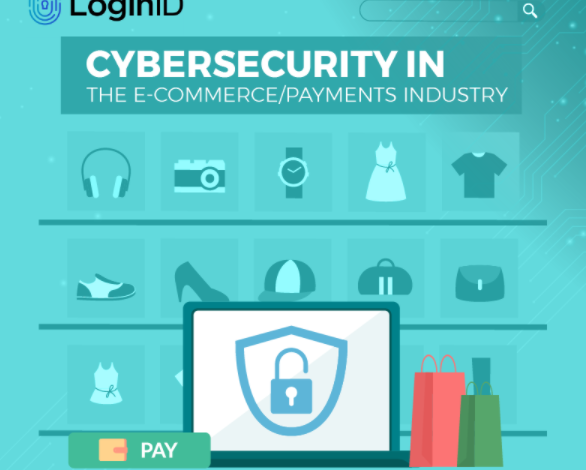
E-commerce is defined as the online purchase and sale of tangible goods and services. It involves multiple parties and the exchange of data or currency to process transactions. It is part of the more significant electronic business (e-business) industry and involves all the necessary processes to operate a company digitally.
It’s not as simple as it looks like to provide goods and services online. It would help if you researched the market, your target audience, the expected business costs, and threats that can hinder your success.
From the last part, you need to focus on the threats, mainly because you need to provide solutions for them when something happens. In the e-commerce payments industry, cybersecurity is essential. Hence, the reason why you need to opt for tools that can help you along the way.
E-commerce Cyberattacks
Cybercriminals target various industries, including finance, healthcare, and energy. Cyberattacks are more likely because of the nature and ease of use of e-commerce. Unauthorized individuals can access and modify confidential information and system controls if secure networks or platforms. Every year, cybercrime damages small and medium businesses $2.2million on average. This includes reputational damage and financial losses.
FIDO2 Solution Tools
To prevent any of these, a stronger tool is required for your corporation. A FIDO2 biometric authentication that is certified already is what you need. Technology constantly improves to counter threat actors’ attempts to find weaknesses within a system. Biometric technology is in a secure place that allows for full integration. Biometric authentication technology is a viable option as biometric traits are difficult to forge, algorithms constantly evolve, and hardware scanners have near-zero errors.
Cybersecurity experts recommend only collecting the necessary information. Hackers will not be attracted to a company that has fewer data. Only keep what is essential for your business. Don’t collect anything that isn’t necessary or useful. Online companies should post privacy policies to make customers aware of their rights and acceptable.
The customer’s experience is indeed vital to the success of any business. By providing a secure platform, they can ensure their safety as well. Giving them an online receipt with digital signature is another safety protection that you can add to your institution.
Fraud Prevention
While the basic purpose of Identity Verification is to prevent fraud, the process also has other benefits. It helps institutions comply with government regulations and maintain public trust. In particular, if they are found to have been a haven for illicit activities, they may face serious repercussions. Moreover, outdated ID verification processes can negatively impact institutions’ efficiency and bottom line. For example, requiring customers to visit physical locations and present photo ID is no longer an optimal solution in the digital age. Besides, this method of verification is inaccurate, time-consuming, and often harms the customer experience.
Another major disadvantage of Identity Verification is the possibility of a data breach. While this may seem unlikely, it can compromise biometric authentication. A recent attack on a centralized biometrics application revealed unencrypted biometrics information. If these details are stolen, users could be vulnerable to spoofing. Therefore, the process is no longer secure and should be used only when absolutely necessary. However, many users still opt for this method of ID verification because of its increased safety.
Identity Verification Using FIDO2
major benefits of using an Identity Verification service is that it ensures that the user’s identity information is true and accurate. It does this by verifying the user’s identity against a database of authoritative sources. This means that the service can help a business protect its reputation as well as its customers. It also helps prevent fraud by ensuring that the information a user provides is authentic and reliable. This service is essential for preventing data breaches and preventing spoofing.
FIDO2 is an international standard that enables secure logins with biometrics and on-device PINs. FIDO2 is fast becoming the de facto standard for authenticating users. The FIDO2 protocol eliminates the need for passwords and one-time passwords, making it easier to authenticate users and ensure greater privacy in digital platforms. It also improves user experiences. This is an important consideration in the security of digital applications.
FIDO2 Security
FIDO2 is a standard for secure online transactions. Its encryption standards are very secure, and FIDO2 is the most widely-supported security standard. It is widely supported by millions of devices. And it has helped many companies comply with the AML-KYC regulations. Using FIDO2 means strong security for users and a better user experience in digital platforms. If you’re wondering what Identity Verification is, read on.
Today, digital identity verification helps organizations provide a better experience for employees, customers, and staff. It supports the onboarding of remote employees and supports compliance with KYC. In addition, it helps HR professionals capture electronic signatures on W-4 tax forms and other forms. Lastly, it reduces the risk for financial institutions. Ultimately, the benefits of ID verification make it the most valuable security technology for businesses. When integrated into online transactions, this technology can provide enhanced security for users and protect your brand.
See this infographic from LoginID to know more about cybersecurity in the e-commerce/payments industry.
